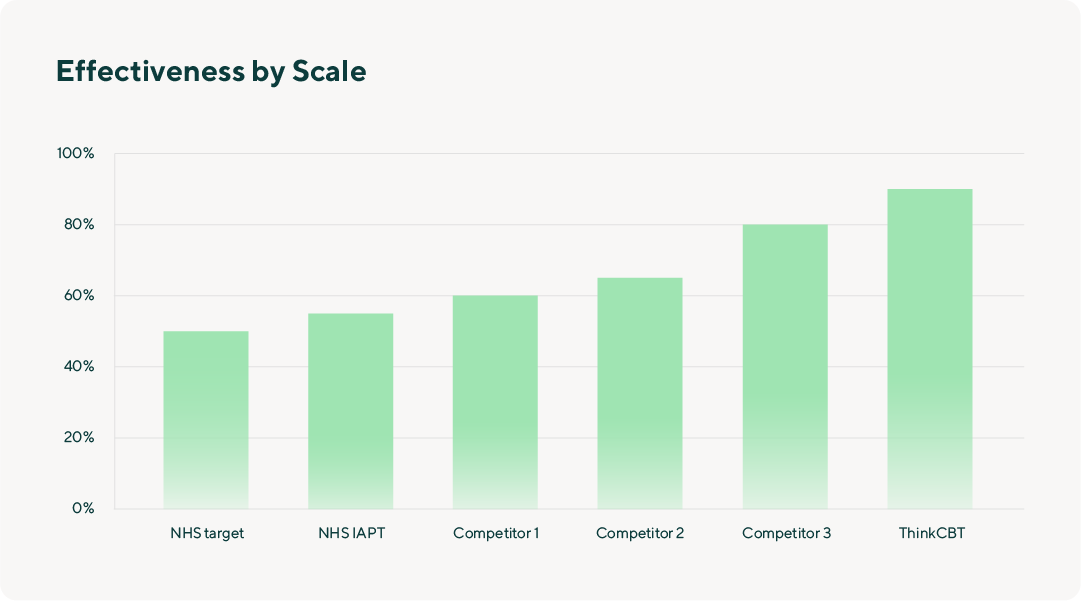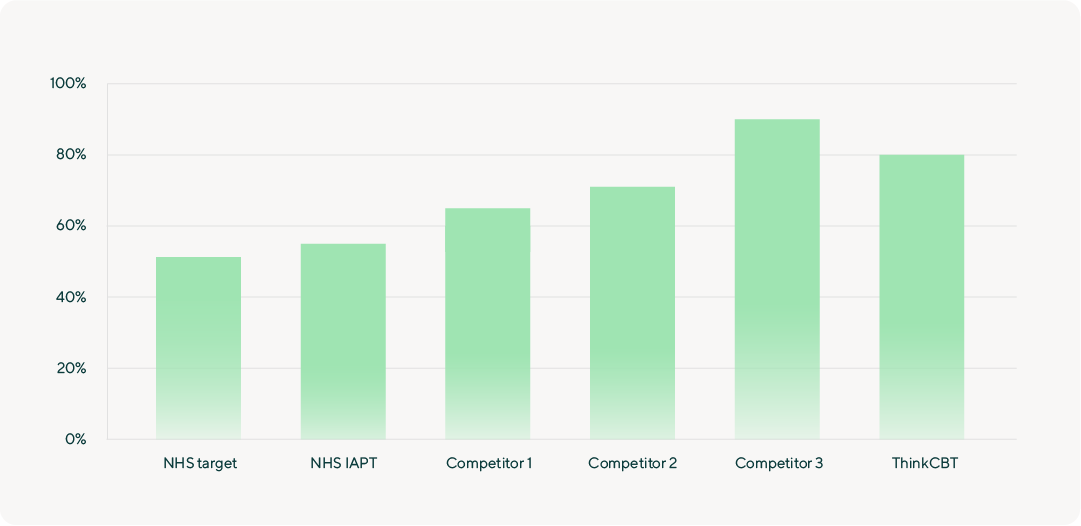Objective
To determine the effectiveness of MANUAL’s Cognitive Behavioural Therapy (CBT) program on depression, anxiety, and trauma.
Introduction
Depressive disorders are one of the most widespread mental health issues affecting people of all ages around the world today. According to the World Health Organization (WHO), an estimated 3.8% of the world’s population—roughly 280 million people—are dealing with depression1 . This can have a profound impact on a person’s quality of life, cognitive abilities, and overall well-being1. Depressive disorders manifest in a spectrum of symptoms and have varying degrees of severity2.
If you are struggling with depression and would like more information on help available, please click here.
If you are looking for advice for coping with anxiety, please click here.
Read more about the link between anxiety and sleep disorder here.
What is Cognitive Behavioural Therapy (CBT)?
CBT is recognised as one of the most effective non-pharmacological treatment options for a range of psychiatric disorders, including depression, anxiety, somatoform disorder, and substance use disorder3 4.
CBT goes beyond conventional approaches by identifying and challenging negative thought patterns and behaviours, replacing them with healthier and adaptive alternatives5. The latest research confirms the effectiveness of CBT in tackling these conditions6. Studies show that integrating CBT with pharmacotherapy yields superior outcomes compared to relying solely on medication7.
Where is the evidence gap?
Gaining a deeper understanding of CBT therapy creates opportunities for healthcare professionals to craft personalised and highly effective treatment strategies in real-world settings. Reshaping the patient experience could lead to better results and an enhanced sense of well-being.
MANUAL assessed its Mental Health program via Think CBT to further understand its impact on depression, anxiety, and various dimensions of quality of life outcomes.
Methods
Think CBT offers patients eight sessions with the UK’s leading CBT therapists to treat a range of mental health conditions. In this prospective study, we reviewed 71 patients who received therapy, and measured their improvement using standard medical questionnaires, including PHQ-9, GAD-7, WSAS and IES-R questionnaires.
We asked them to complete the questionnaires before they started therapy, and then during the last session before their discharge. We defined recovery as when an individual’s mental health improved enough to fall below the caseness cut-off (a certain pre-specific standard) that was assessed after treatment concluded.
Scales
You can read about/test the PHQ-9 here8. This scale measures the severity of depression (score range: 0-27). We predefined clinically significant improvements in scores throughout the therapy as 5 or greater, in line with the NHS target of 50% improvement.
You can read about/test the GAD-7 here9. This scale measures the severity of anxiety (score range (0-21). We predefined clinically significant improvements in scores throughout the therapy as 4 or greater, in line with the NHS target of 50% improvement.
You can read about/test the IES-R here10. This scale measures the subjective response to a specific event in an adult or senior population (score range: 0-88). We predefined clinically significant improvements in scores throughout the therapy as 9 or greater.
You can read about/test the WSAS here11. This scale measures the impact of a person’s mental health difficulty on their ability to function in terms of work, home management, social leisure, private leisure, and personal/family relationships (score range: 0-30). We predefined clinically significant improvements in scores throughout the therapy as 8 or greater.
Results
From pre-treatment to discharge, the mean number of CBT sessions per patient was 11.73 (IQR 8, 12). Patients experienced clinically significant changes with every scale assessed, noting significant improvements in depression, anxiety, PTSD, and functioning in work and social settings. Overall client satisfaction with their therapist was 87%.
Effectiveness by Scale
PHQ (n=71): Patients experienced an average point shift pre and post-treatment of 7.8 (SD 5.57), with 92% of patients reducing their depression, and 67% achieving a statistically reliable reduction point change of 5 or greater. Among those diagnosed with severe depression (n=20), 16 out of 20 (80%) experienced a significant reduction in severity, with 5 in 20 (25%) reduced to normal levels upon discharge.

GAD-7 (n=71): We observed an average point shift of 6.2 (SD 4.93), with 85% reducing their anxiety, and 68% achieving a statistically reliable reduction point change of 4 or greater. Among those diagnosed with severe anxiety (n=30), 22 in 30 (73%) experienced a significant reduction in severity, including 7 in 22 (32%) who reduced their anxiety to minimal levels by the end of treatment.

IES-R (n=23): Among the patients who met the threshold for IES-R assessment, 21/23 (91%) experienced a significant point drop of at least 9 points, with an average point drop of 21.26 points.
WSAS (n=18): Among the patients who met the threshold for the WSAS assessment, the average point shift was 13.89 (SD). 12/18 (67%) patients achieved a statistically reliable reduction (>8 points).
TL:DR / Summary
Overwhelming evidence supports the safety and efficacy of MANUAL’s CBT therapy. Beyond its effectiveness, patients reported high levels of satisfaction, showing not only the high-quality care received but also the remarkable outcomes achieved.
MANUAL’s program not only leads the market in terms of success but also brings about concrete, measurable enhancements in the psychological health and overall well-being of the patients.
Discussion
MANUAL’s ThinkCBT program demonstrated statistically reliable symptom reduction below caseness standards for PHQ-9, GAD-7, IES-R, and WSAS scales.
These findings are particularly noteworthy due to the nuanced and holistic approach to addressing complex issues associated with emotional dysregulation.
These findings contribute to the growing body of evidence supporting the efficacy of CBT in mental health treatment on both its immediate impact on symptom reduction and promoting long-term changes in behaviour and emotional responses.
While these results are promising, further research on larger and more diverse populations is imperative to explore the program’s efficacy across a broad spectrum of settings and demographics.
We will be conducting further research in collaboration with top Universities in the UK. If you are interested in participating and gaining early access to findings, please sign up here: research@manual.co. Your involvement could be a vital part of shaping the trajectory of obesity research. We value your potential contribution to fostering positive developments in overall well-being.
While we've ensured that everything you read on the Health Centre is medically reviewed and approved, information presented here is not intended to be a substitute for professional medical advice, diagnosis, or treatment. It should never be relied upon for specific medical advice. If you have any questions or concerns, please talk to your doctor.


